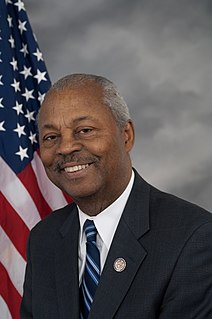A Quote by Donald M. Payne
I believe in supporting African solutions to African problems.
Quote Topics
Related Quotes
One of the things that made the Black Muslim movement grow was its emphasis upon things African. This was the secret to the growth of the Black Muslim movement. African blood, African origin, African culture, African ties. And you'd be surprised - we discovered that deep within the subconscious of the black man in this country, he is still more African than he is American.
The African-American is often used, and has conspired with the rest of America to be used, as a diversion from America's problems. I wish African-Americans would stop contributing to this sideshow. I also wish all African-Americans would cease to sing and dance just for a generation. I think we provide too much entertainment.
My solutions are to include Africa in the global economy, and not African charity, AIDS research, but African infrastructure development. And I think that Africa can import and needs everything the whole world can manufacture. And they have got enough money to pay for it. It's just that the money is in the ground.
Writing has always been a serious business for me. I felt it was a moral obligation. A major concern of the time was the absence of the African voice. Being part of that dialogue meant not only sitting at the table but effectively telling the African story from an African perspective - in full earshot of the world.
We know that the African regimes, many African regimes have failed their people and many Africans want regime change, and there are a lot of African leaders who make promises but don't carry them out. I mean, the progress - I mean, it is noble for the rich countries to help Africa, but then the question is: What are African leaders themselves doing to help their own people?


































